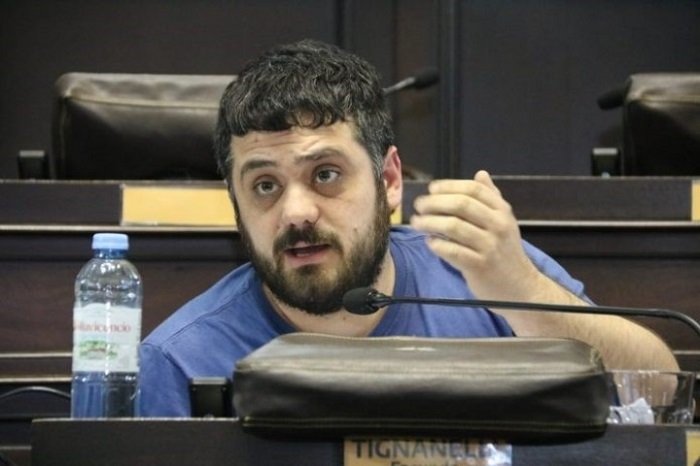You heard it on Don’t Salep

Facundo Tignanelli
The radio program spoke with Facundo Tignanelli, deputy of the Province of Buenos Aires for Unión por la Patria, who emphasized the policies of the national government regarding the Buenos Aires area.
Tomás Modini
@ModiniTomas
The situation of public works
At the beginning of the telephone conversation, Facundo Tignanelli was asked about public works: “The Province requests that the assumed commitments be paid, it is not that the Province says that it has the vocation to assume all public works, they are commitments of the national state. We want them to comply and if they are not going to comply, then they should transfer the funds that they have not done either. In fact, the Province is the one that is most behind in all the collections of funds that exist.”
“I think there is a political decision to do it like this, which is based on an erroneous reasoning by Milei’s government, which proposes to balance the accounts and take from the Province because it has a lot and to balance from there,” he said.
He then said that “these are accounts that are not in order either because everywhere we look at the numbers there is a fake surplus” and that “they did not pay anything and as a result of that they have a positive balance in the box, but when one counts all the debts that the national government kicked in, one realizes that they are in the red.”
The disparity in co-participation
On the other hand, the deputy emphasized the funds that the Province receives today: “It is part of an erroneous analysis because in the beginning what they propose from freedom and all that nonsense, the Province is the one that contributes the most and the one that receives the least from co-participation in a regime of solidarity with other provinces.”
“That is why it also has so many funds affected. If one thinks about the composition of the political representation that the people of Buenos Aires have, it is also out of shape because we have fewer national deputies than the Autonomous City of Buenos Aires, which has twice as many as the Province has,” he added.
He also stressed that “if we do a quick calculation, the City has approximately 3 million inhabitants and the Province has five times that number and there is not five times as many deputies in one compared to the other.”
“The Province of Buenos Aires, which has a strategic company like Aysa, does not have enough hands to assert that weight and say that if the company returns to private hands we will be at the back of the queue to have drinking water provided to the suburbs. These imbalances make these injustices permanent,” he indicated.
Government policies to harm the Province
In line with the latter, Tignanelli said: “Without a doubt there is a will of the national government to harm the interests of the people of Buenos Aires, I understand that it is the anger of how President Milei manages in his madness that they have not voted for him. He lost three consecutive elections in the Province and I understand that this generates in his logic of punishment and revenge. He thinks about disciplining them through the non-management of resources.”
“We are a more than dignified people in the Province and we are going to put up with it. We are rebuilding what is necessary to win the elections again,” he said.
In closing the first section, he explained that “to affect the law of co-participation you need the agreement of all the provinces” and that “this implies that there are some that in the general framework lose so that others win because the cake to be shared is the same.”
In this sense, in the years that we have had to govern, we have compensated through politics for the lack of resources that existed in the Province and in the suburbs specifically,” he said.
Te pueden interesar:
https://www.instagram.com/diarioncomatanza
https://facebook.com/diarionco



